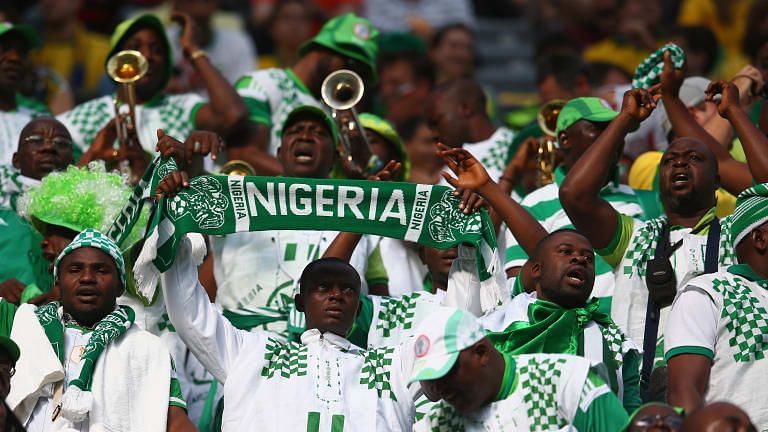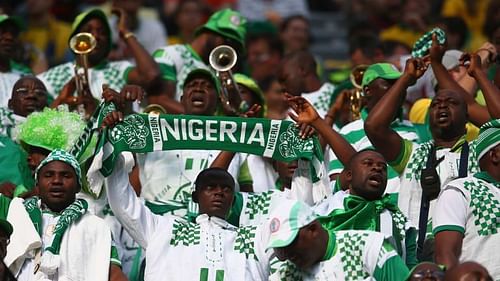
A brief history of Nigeria’s performance at the FIFA World Cup

The West African giant had its most successful spell at the World Cup in the 1990s. Interestingly, prior to that spell, Nigeria did not qualify for nearly 25 years as the country went through military dictatorships, bloody coups, and a three-year long civil war.
The Super Eagles eventually qualified for the 1994 World Cup that took place in the USA, and they exceeded expectations by successfully scaling the group stage and finally bowing out in the round of 16.
The 1994 squad was arguably one of the best squads Nigeria has ever had during the World Cup. Notable members included Jay-Jay Okocha who made over 120 apperances for Bolton Wanderers, Finidi George who won the Champions League with Ajax in 1995, and technically gifted defensive midfielder Sunday Oliseh who played for Ajax, Juventus, and Borussia Dortmund in his prime.
Nigeria was placed in the same group alongside Bulgaria (who they beat 3-0), Greece (who they beat 2-0), and Argentina that handed the Super Eagles a 2-1 loss. In the round of 16, Nigeria faced European giants Italy in a game that they lost 2-1 in extra time. Emmanuel Amunike had scored first for the Super Eagles 25 minutes in and they held onto their lead for most of the game. However, the Italians refused to back down and Roberto Baggio equalized with only two minutes of normal time left. The game was forced into extra time and Baggio scored yet another goal, thanks to an awarded penalty for the Italians.
While Nigeria is yet to progress past the round of 16, 1994 is the only year where the Super Eagles had a genuine chance of crossing into the quarter-finals. The next World Cup in 1998 may have had many of the same players, but they did not achieve as much as they had four years earlier.
Asides beating Spain (3-2) and Bulgaria (1-0) in the group stage, they lost to 1-3 to Paraguay and 1-4 to Denmark in the round of 16. Interestingly, 1998 also happens to be the year the Super Eagles conceded the most number of World Cup goals in their history.
By the 2002 South Korea and Japan World Cup, Nigeria had lost much of their 90s drive and skill. They were unable to win a single match during the Group stage, and they fumbled out of the World Cup with only one goal to their name - the lowest record for goals scored in the World Cup for the Super Eagles.
The difficulties of the 2002 World Cup persisted, and by 2006, the Super Eagles did not qualify for the World Cup in Germany. Their fortunes had changed by 2010 when they qualified to partake in the 'Vuvuzela' World Cup in South Africa, but it ended as a repeat of their 2002 outing: They failed to win a single game in the group stage.
By the next World Cup in Brazil (2014), players like Ahmed Musa and Chelsea legend John Mikel Obi had successfully integrated into the team. They drew 0-0 with Iran, beat Bosnia-Herzegovina 1-0, and lost 2-3 to Argentina. The four points picked up were just enough for the Super Eagles to head into the round of 16 for the first time since 1996. However, they faced France and were knocked out after a 2-0 loss.
The most recent World Cup in 2018 had Nigeria face Argentina yet again in a clash that ended 1-2 in favour of the South Americans. It was enough to kick them out from the group stage where they had also beaten Iceland 2-0 and lost to eventual finalists Croatia (0-2).
The 2022 Qatar World Cup is around the corner, and Nigeria is fully expected to qualify without much difficulty. It is left to see if new faces like 20-year-old Villarreal winger Samuel Chukwueze and 20-year-old centre-forward Victor Osimhen will bring the vitality needed to push Nigeria into the knockout stages for the fourth time in the Super Eagles' World Cup history.